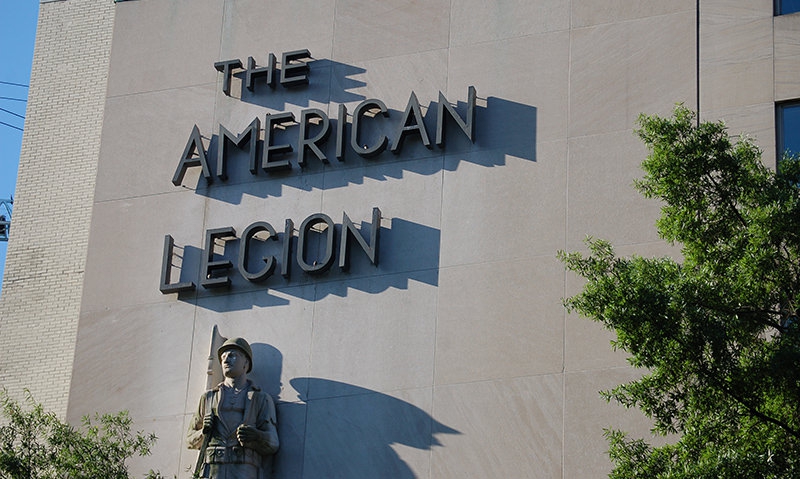
When veterans reach out for help, The American Legion answers the call.
Filled with hope and a prayer, Dee, a displaced U.S. Army veteran, found her way to a Suicide Prevention Awareness Information Expo at the Washington, D.C. Department of Veterans Affairs Medical Center. Little did she know, the bond she formed with American Legion representatives would change the course of her life.
“I heard about the event on the radio and decided to attend. I wasn’t suicidal, but I knew that an event at the VA would be a good place to reach out to people and make connections,” she said.
At the time, Dee lived in her car and was out of options to help keep her afloat. After learning about her story at the event, American Legion staff immediately stepped in to help. The Legion’s Women and Minority Veteran Outreach Program Assistant Director Charley Yancey and Veterans Employment & Education Division Deputy Director Mark Walker coordinated efforts to help Dee obtain the resources that she needed.
In addition to his Legion duties, Walker helps place homeless veterans in transitional and permanent housing and serves in various capacities on homeless veteran related boards in the community. The deputy director also heads the Legion’s homeless veteran outreach efforts at the local and national level.
“I work with the folks here in the community a lot, so if I get a call regarding a veteran in D.C., Maryland or Virginia, I know who to call,” Walker said.
Walker noted that he is able to better serve the veterans he encounters by helping them dig deep and get to the root of the issues they are experiencing. “First, I try to find out a little bit about their story,” he said. “These are people who have served. At that point in their life they were not homeless. It is best to get a sense of their journey and find out what has happened to them since then.”
After identifying the needs of the veterans, Walker said he tries to understand their story by identifying VA benefits they may be eligible for, or already using, and focusing on any other goals or objectives they would like to reach.
“Every situation is not the same. Everybody’s issues are different," he said. "Some homeless veterans may need short-term help and immediate housing, treatment or help with other obstacles they are facing. There is a variety of different things they may need to help them integrate back into society."
Dee relocated to the nation’s capital Sept. 1 with the hopes of finding employment and housing. Shortly after attaining her master’s degree in May, she came to a crossroads in her life. Forced with the decision to move back to her hometown in Detroit or start a new life elsewhere, she chose D.C. as her new home.
“I came to D.C. with nothing but faith and $261 in my pocket. That’s all that I had, but I was determined to make it work,” she said. “I checked in at the VA when I got here. They referred me to a resource center and I slept in my car in the meantime – praying that nothing would happen to me.”
Together, Walker and Dee identified programs and benefits available to her. Walker connected with his counterparts at a local United States Veterans Initiative (U.S. VETS) transitional housing facility and facilitated a warm hand-off.
“I always make sure I make the calls for the veterans so they are not going into situations blind,” Walker said.
Once Dee checked in to the U.S. VETS facility, she began to receive calls regarding job interviews and permanent housing options. “I made a connection with The American Legion. From that point on, it was history," she said. "This means the world to me because it is the beginning of a new life for me. The opportunity to have a roof over my head brings me peace of mind. Thanks to The American Legion I now have a support system around me.”
Yancey placed emphasis on the Legion’s dedication to helping women veterans. “There are several unmet needs out in our communities – beyond the scope of homelessness and employment," she said. "What about the intangibles women veterans have to manage while navigating the civilian world? That is one of the main reasons the (Legion's) Women and Minority Veteran Outreach Program was created. We are building this program up so it will meet the needs of women veterans. Through our Women Veterans Survey, we are able to identify what the veterans say they need.”
Women veterans can access the Legion’s Women Veterans Survey here until Sept. 18. All information from the survey is kept private and submitted anonymously.
Now that the Army veteran is settled in her new town, she set goals for herself to achieve over the next three years. Dee hopes to start her career in the social work field, secure permanent housing and complete her doctorate degree.
“I would like to help empower others and help others in the veteran population that need help overcoming their obstacles,” she said. “Hopefully I can help shape people’s lives. People helped me get to this point, so I will extend myself wholeheartedly to assist others that need help.”
Walker noted the efforts of The American Legion and Legionnaires across the nation to help combat veteran homelessness. At the ground level, several Legion posts provide temporary housing and hotel lodging to veterans in need. Through the Legion's Operation Comfort Warriors program, wounded veterans can receive comfort items and other asisstance to help with recovery. And the Legion's Temporary Financial Assistance program provides cash grants to eligible veterans with minor children; the grants help families in financial need meet the costs of shelter, utilities, food, clothing and medical expenses.
American Legion National Commander Charles E. Schmidt's fundraising goal during his tenure is to raise $1 million for the Temporary Financial Assistance program.
- Homeless Veterans

